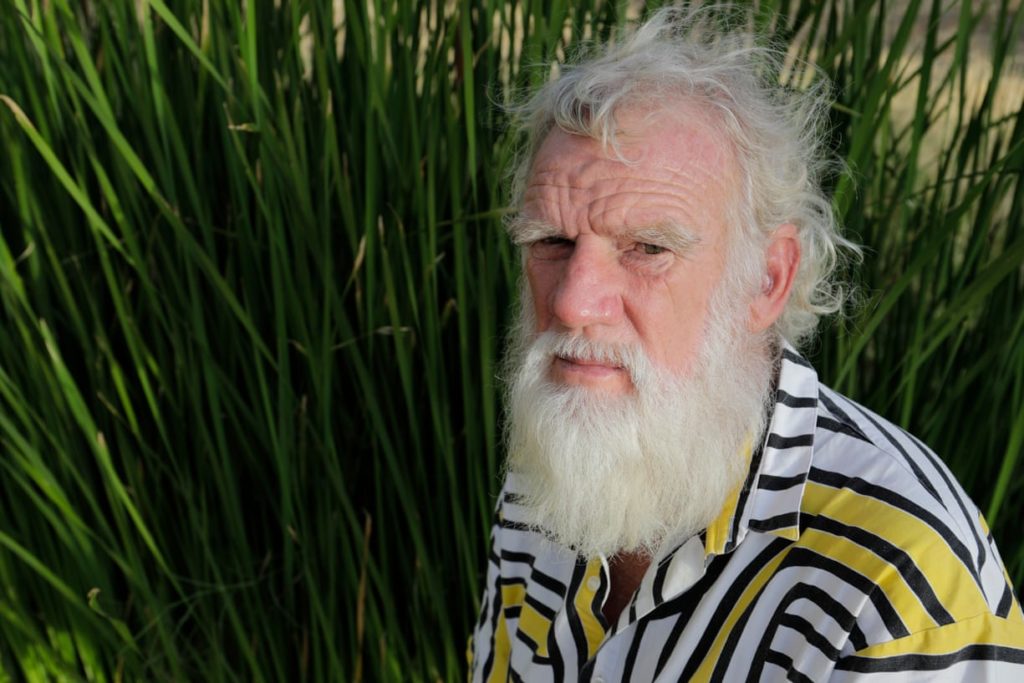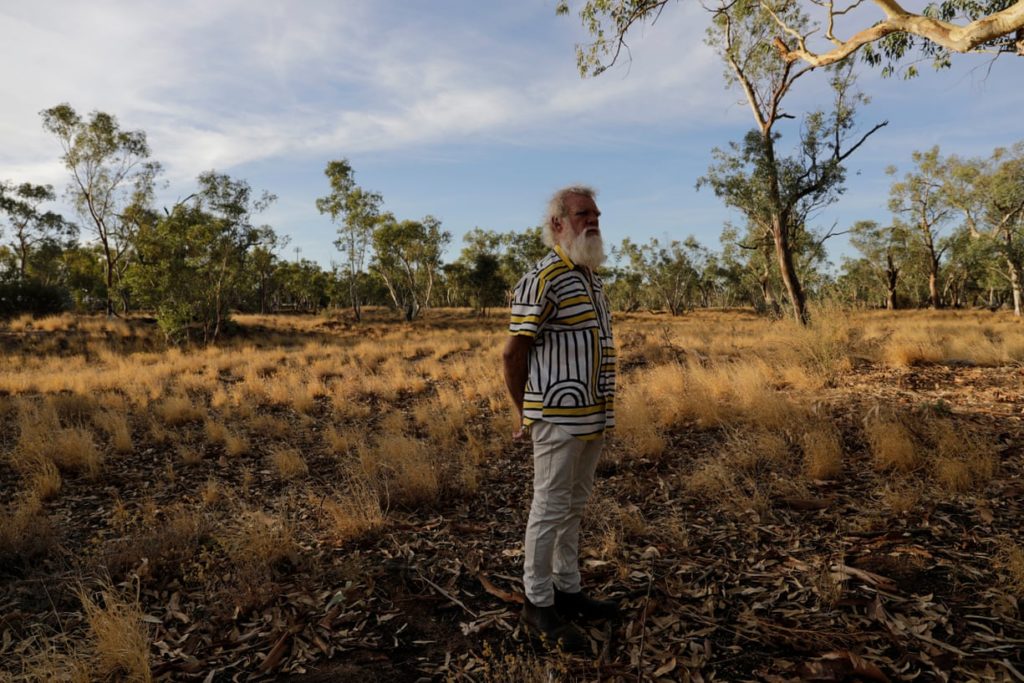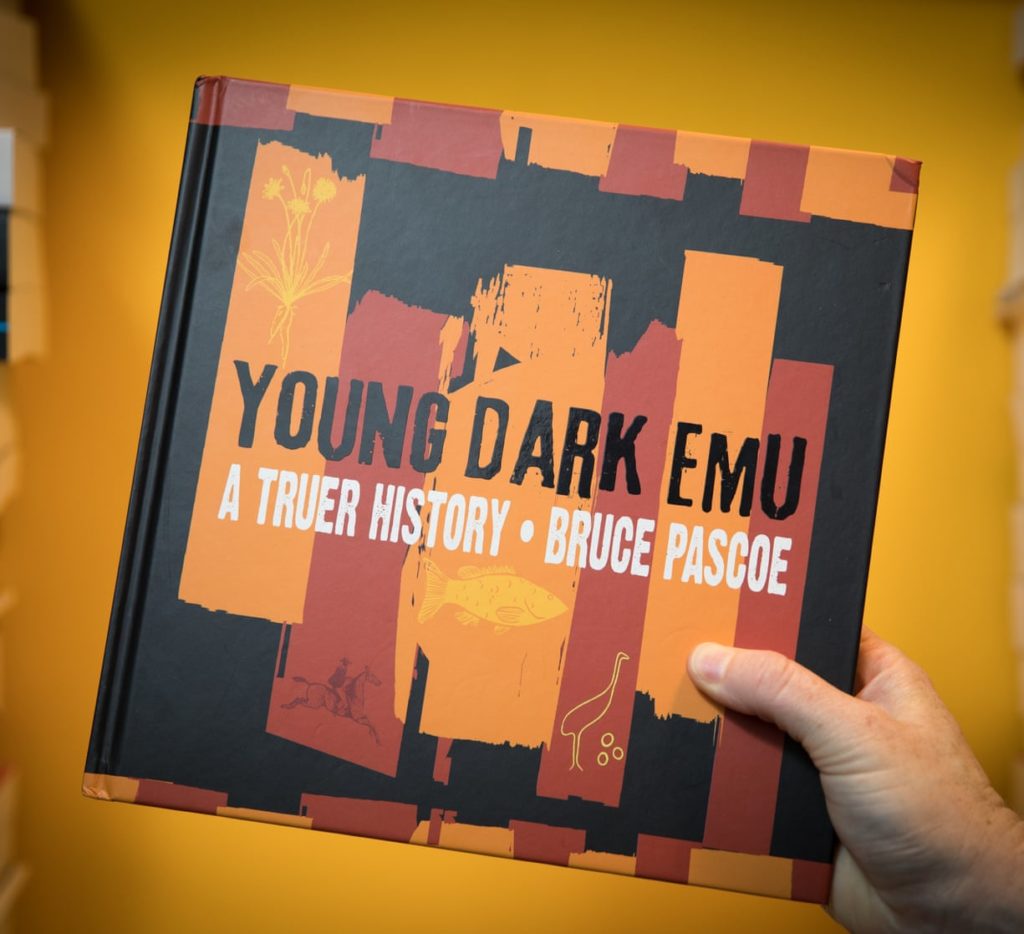Teach your children to rebel. Teach your children to doubt
At school, Bruce Pascoe was taught Aboriginal people were backward wanderers. Today, the Dark Emu author argues for curiosity and doubt
See original story in the Guardian

A million fish died in our rivers last summer because billionaires dammed the upper reaches of several major Australian rivers so they could grow cotton. “What about the fish?” we should have asked our government. “What about the trees? What about the downstream farmers? What about Adelaide?”
We should have asked those questions of our government, but no, we left that to the farmers and to a bunch of “hippies” – the same bunch who protested at the slaughter of whales (and made millionaires of those conducting whale watching tours in the process).
We celebrate the return of Guruwul (whale), just as Aboriginal people always did and do. But the whales are only back through the efforts of people we allow our newspapers to malign: smelly, hairy, dole-bludging environmental warriors. One of those dole bludgers – a doctor with three kids – told me last week that taking leave from work to join the protests cost her thousands of dollars, “but I would do it all again just to see the whales on our coast again”.
We, the quiet people, need to rebel. We need our children to rebel – not necessarily by chanting platitudes or yelling into megaphones, although the whales were saved by such methods. If we don’t encourage them to demonstrate or protest, then we need to instil the wisest of all our skills in our children: doubt.
We need our children to care about the planet like those who have saved the whales for the enjoyment and reassurance of all. We need our children to consider the orthodoxy of the world, and examine it for its merit. That is called education.

When I was told at school that Aboriginal people were wanderers and the most backward people on Earth, I was ashamed rather than rebellious. Inquiry had been drilled out of me. By the time elders had drilled it back in, years after I left university, I began using the greatest research tools of all: curiosity and doubt.
We don’t need the kind of doubt that cripples us into inaction, but the kind that inspires generous thirst for investigation. I want students to read Young Dark Emu, not to vindicate my own opinion but to raise a platform for vigorous inquiry and generous doubt.
Doubt is just another word for investigation, the application of intellectual rigour, the wrestle of the mind with difficult concepts, the desire to make the world a better place rather than meekly accept the word of the more fiscally energetic.
My own reading was undirected growing up; we were a family of tradespeople and only my father read. He read quite widely but was still trying to convince himself that God was good. This is not necessarily a bad thing but many of the proselytisers are flat earthing avengers, and need to be approached with … doubt.
My own reading began with the Collins Seagull Library: a world of snow sleds and intelligent huskies, deserts and endurance. Living in the wilds of King Island, Tasmania that was all I knew – not the snow and huskies, but the power of nature and the attention you have to give her, the kind of attention that makes you fall in love.
I snuck a look at my father’s books and knew him to be a good man because of it, but then good school teachers, the doubters and worriers, introduced me to a world of Australian books. I loved Lawson, was suspicious of the jingoism of Paterson, but I was troubled by Barbara Baynton, the great doubter.

I loved Patrick White from the first mention of scrolls of bark in The Tree of Man but worried increasingly of his treatment of Aboriginal people, as colourful wallpaper on which to write grander ideas.
I loved John Morrison and Alan Marshall, of course, but it was the stories of Judith Wright, so underrated in Australia, that had my fingers tingling with the impulse to write.
I suppose I was 16 when I first read Dylan Thomas and was entranced by his manipulation of words and ideas. Of Aboriginal literature I was innocent until I read Oodgeroo, but it was Jack Davis who thundered justice into my brain, a thunder that still rolls whenever I turn the page, any page.
Teach our kids doubt so they can build strong, reliable minds. Teach them to avoid the cosmetic, the craven, the jingle of self-satisfaction. If they want to watch any number of glitzy reality TV shows, ask them if it is a good thing to set up nasty, shallow, meaningless human conflicts. Ask them if it is right to be mean and careless. Ask them to wonder about a society that needs such things to relax at night.Advertisement
Introduce them to doubt and wonder. The world will be safer and healthier for the exercise of their brains


